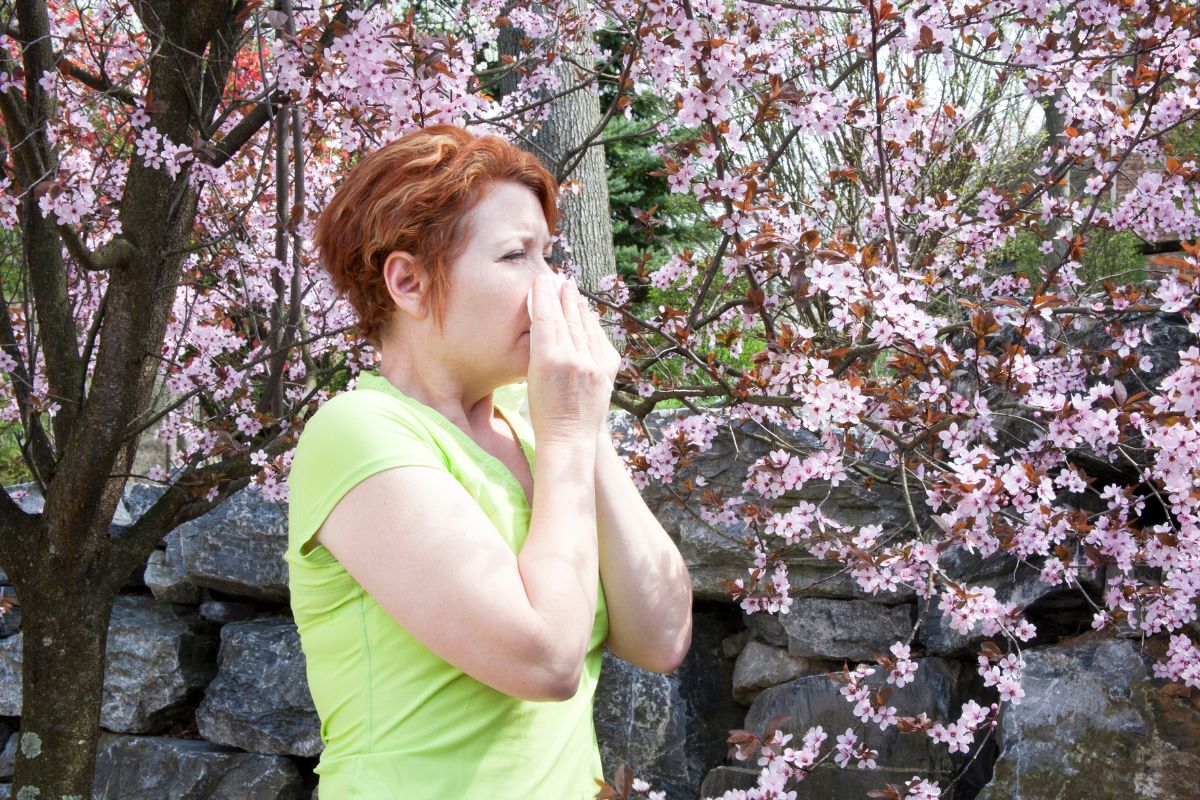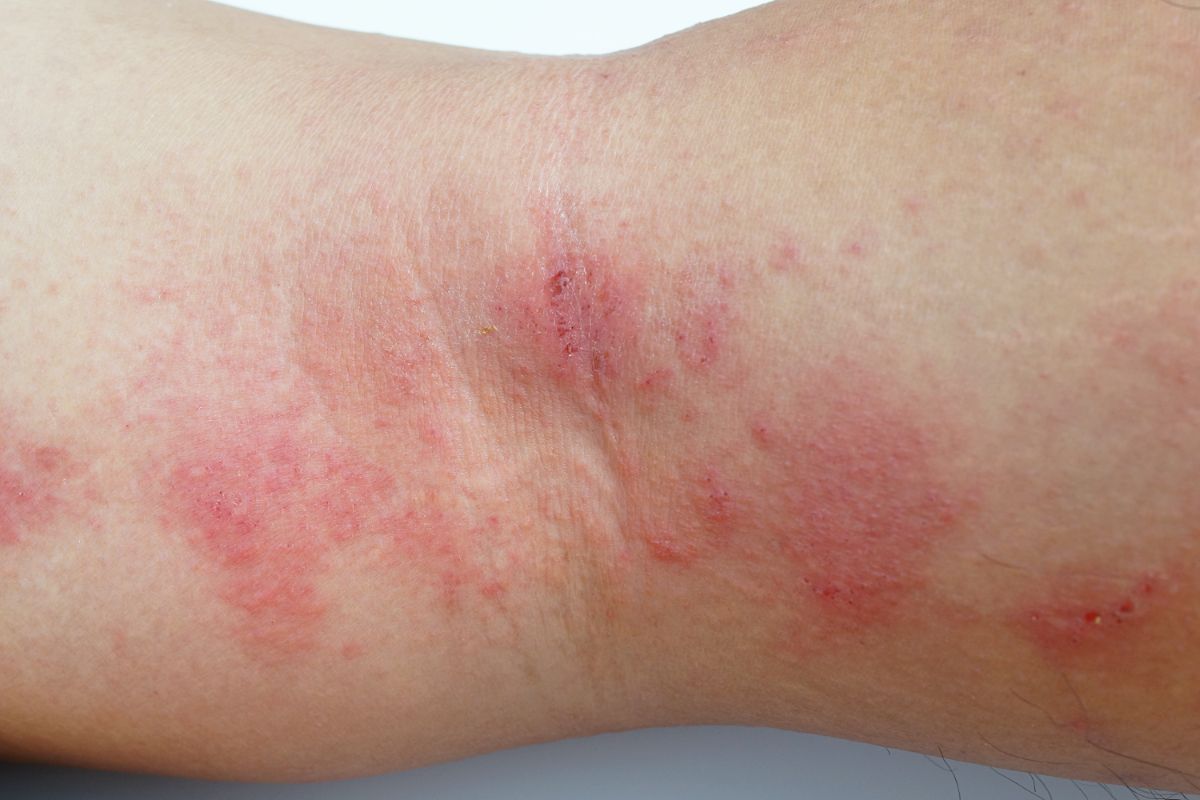Allergic Rhinitis, more commonly known as hay fever, is an allergic reaction that causes cold-like symptoms. If you have ever experienced hay fever, I’m sure you are no stranger to the runny nose, burning itching eyes, congestion, constant sneezing, and sinus pressure.

This can become incredibly irritating since the reaction comes from dust mites and pollen which are pretty hard to avoid.
Especially since they can easily cling to many other things like tiny flecks of skin, saliva, your pet’s hair, and your clothes.
So more often than not you’ll bring the offender back into your home and it can seem impossible to get a little relief.
And besides just generally making your day that little bit worse, it can also affect your performance with school, college, or work as well as just interfering with any plans that you might have.
But it doesn’t always have to be this way, in this article we will go over the symptoms and causes of seasonal allergies in hope that you can find the right treatment and get back to your day without the stress of hay fever.
Symptoms Of Hay Fever
- Nasal congestion and a runny nose
- Painful eyes which may be watery, itchy, or burning
- Sneezing
- Coughing
- Itchy nose, throat, and mouth
- Swollen, blue-colored skin under the eyes
- Postnasal drip
- Fatigue
Seasonal Factors
As you will probably notice, hay fever often seems to get a lot worse once we hit Spring and move into Summer but it can be triggered all year round. There are many seasonal factors that cause this and these include:
- Tree pollen is more common during the beginning of Spring
- Grass pollen is very common during late spring and early summer
- Ragweed pollen is common during the fall.
- Dust mites, dander, and cockroaches can trigger your allergies all year round, but dander tends to be worse during the winter when the house is more closed.
- Spores from molds can be both seasonal and perennial and so can be triggering all year round, but they will be more profound during the summer.
When To See A Doctor?
Many people eventually learn to just live with hay fever symptoms, however, there are a few cases where you should seek medical attention.
- If you have constant symptoms and never seem to get any relief
- Allergy medications don’t offer any relief
- You have pre-existing conditions that worsen your symptoms such as asthma.
Causes
If you have hay fever, the way your immune system reacts to pollen and dust mites and such is not as it should. Basically, your immune system perceives these harmless substances as very harmful.
Your immune system then produces antibodies for this substance. Then every time you come into contact with these substances after this, these antibodies send signals to your immune system to produce chemicals such as histamine.
The histamine in your blood is what causes the reaction and creates hay fever symptoms.

Risk Factors
There are a few factors that can increase your likelihood of developing hay fever these include:
- Having pre-existing allergies
- Having asthma
- If you have a blood relative who already suffers from allergies
- If you have a blood relative who already suffers from asthma
- Living/working in environments with constant allergen triggers such as animal dander and dust mites
- Having a mother who smoked during your first year of life
Complications
There are a few problems that you may encounter that are related to hay fever. These include:
- Reduced Quality Of Life – Hay fever symptoms can be very hard to ignore and can ruin enjoyable moments. It can even lead to absences from school or work if the symptoms are very severe.
- Poor Sleep – Hay fever can make it quite difficult to fall asleep at night, especially when symptoms can feel worse during the night. A lack of sleep can cause its own host of complications but mainly causes you to feel very fatigued and unwell.
- It Can Worsen Your Asthma – If you already suffer from asthma, hay fever can really agitate symptoms such as coughing and wheezing.
- You Can Develop Sinusitis – If you suffer from long-term sinus congestion from hay fever it can make you a lot more susceptible to sinusitis. This is an inflammation or infection in the membrane that lines your sinuses.
- Can Cause Ear Infections – This is more prevalent in young children. Hay fever can cause an ear infection known as otitis media.
Prevention
Unfortunately, there is no real way to ensure that you can completely avoid hay fever. Trying to constantly avoid dust mites or pollen is near impossible but there are things you can do to lessen your symptoms.
Taking allergy medication, and avoiding possible triggers will help.
If the symptoms still persist, seek medical advice from a professional.
Final Thoughts
Hay fever can be really annoying for people who suffer from it. But knowing the triggers that cause it can be half the battle.
While pollen may not be avoidable, there are ways to try and reduce the amount you come into contact with.
Keep washing your hands to avoid spreading pollen or dust mites. Change your clothes too once you come home so that you’re away from pollen that may have collected on your clothes throughout the day.
Fresh bed sheets will also relieve symptoms at night.
It is important to not ignore persistent hay fever symptoms where there is absolutely no relief as this can develop into worse illnesses.
Seek medical attention from a medical professional if this is the case as they may be able to prescribe something to help you.
Hopefully, throughout this article, you now have more knowledge and understanding of the causes and symptoms of hay fever.
Now you should be able to relieve some of those annoying and pesky symptoms and ensure that you can have an enjoyable spring and summer.
- Understanding Male Reproductive Health: A Complete Guide - February 2, 2025
- Simple Healthy Skin Habits for Radiant Skin - December 6, 2024
- Unlocking the Connection Between Nutrition and Mental Health - December 3, 2024








